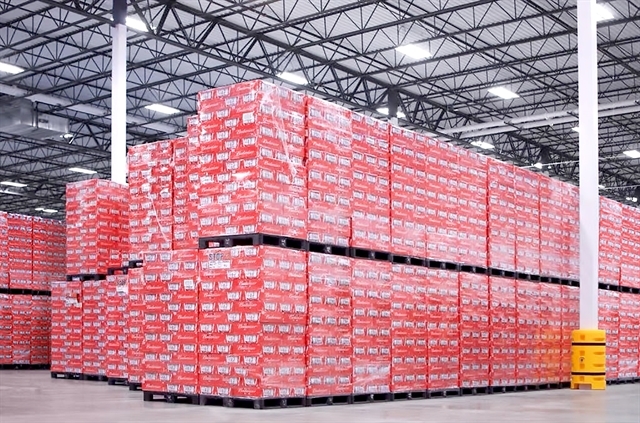 Sports
Sports

 |
| Budweiser will give their unsold stock to the country that wins the World Cup. — Photo courtesy of Budweiser. |
Minh Nguyễn
Before the World Cup 2022 even began, Budweiser spent a huge sum on transporting and storing beer in Qatar. But with serious restrictions placed on alcoholic drinks just days before the tournament began, might this beer company be the biggest loser of all?
Budweiser has been the sponsor of the biggest football tournament on the planet for the past 36 years.
Huge preparations were conducted before this year’s World Cup. They even refurbished W – a luxurious hotel in Doha – with its name all across the check-in counter. There was also a corner called “Budweiser player of the match” for all the most notable players in each and every match.
Everyone seemed ready, except for the Qatari authorities, who issued the ban on beers and alcohol not long before the tournament began.
Immediately, Budweiser knew they were in a difficult position. Their tents around eight stadiums (another method of theirs in preparation for the tournament) also had to be taken down.
It got to the point where even the company saw the funny side, kind of, tweeting: “This is awkward”, although it was soon deleted.
Fortunately it seems they had a plan B. In the refrigerators across stadiums, instead of the usual beer Budweiser makes, we now see Budweiser Zero, a non-alcoholic drink, with advertisements along the edge of the field.
Nevertheless, the fans didn’t particularly enjoy this different approach.
A lot of people clearly stated that this change of regulations was unprecedented and not something they should have decided on so suddenly.
According to Mr. Ricardo Fort, who used to be the head of sponsorship for Visa and Coca Cola, Budweiser had to spend a huge amount of effort and money to transport beer to Qatar and store it, and now everything’s pointless.
 |
| Minh Nguyễn |
If anything, the government should have issued the ban much earlier, or not have done so at all. Basically, Budweiser lost around $5 million on all the necessary procedures to have beer ready for the World Cup, a plan which had been on for several years.
So what’s next? The company decided to donate all the amount of beers to the winner of the World Cup. A new slogan was put up to replace the old one: “Bring Bud home”. Technically, fans can still drink beer and wine at certain times in areas away from the stadiums, as well as buy the drink from government-approved hotels and bars.
This did not prevent the sales of alcoholic drinks to fall drastically compared to the previous World Cups. While some of the audience can put up with the Budweiser Zero, some even prefer water to it.
Speculations also arise on Qatari authorities’ last minute decision. Mr. Fort believes that this late decision was a mistake on their part, not something already decided a long time ago.
Others think that the ban was arranged a long time ago; the government in Qatar just didn’t announce it earlier for fear that fewer people would come to watch the games.
But has this whole booze-free World Cup damaged the tournament itself? Probably not. Sure some fans whinged about it not being easy to grab a beer, and when they could, it wasn’t cheap.
And Budweiser needn’t worry too much. Only four years to go before football well and truly comes home for the US beer brand. And there’s no way America will stop the sale beer in 2026. — VNS
 |